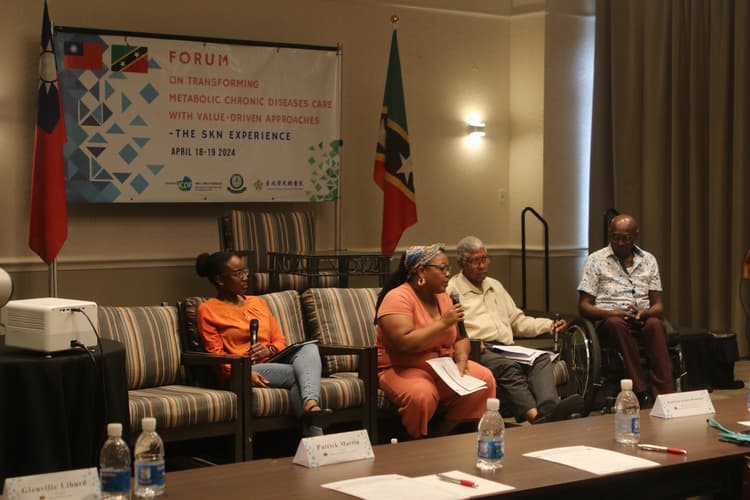You are sweet enough
Strengthening Civil Society’s Role in Health Advocacy
Empowering Civil Society
The World Bank describes civil society as “the wide array of non-governmental and not for profit organizations that have a presence in public life, express the interests and values of their members and others, based on ethical, cultural, political, scientific, religious or philanthropic considerations.”
Based on this definition, civil society organisations (CSOs) play an important role in ensuring that Governments and the private sector act in the best interest of the public and this involves advocating for policies and actions that benefit society.
In public health, civil society organisations from across the world have a long history of successfully advocating on behalf of patients for better care and treatment, and to reduce health inequalities. For example, Cancer Research UK and other cancer charities in the UK have consistently advocated for improvements to the cancer diagnosis pathway leading to a more streamlined and structured pathway that aims to reduce delays in diagnosis and thus reduce cancer mortality.
Additionally, CSOs have fought for the introduction of policies that have improved the health of the public and prevented and controlled diseases. For example, the tobacco control policies that have been implemented throughout the world leading to a reduction in the public’s exposure to tobacco and second-hand smoke leading to reduced rates of tobacco-related illnesses.

Civil Society in Small Island Developing States
In countries such as the UK and US, the CSO environment is a very strong and cohesive one with a variety of organisations advocating for change, having a positive influence on the development and implementation of effective health policies, forming strategic alliances to bring about change and implementing effective advocacy campaigns. Conversely, in many countries, such as here in the Caribbean region, CSOs, because of the small size of our countries and lack of resources, face many challenges when advocating for change and this leaves the public, patients and vulnerable communities without organisations who can effectively advocate on their behalf or hold Governments and the private sector accountable.
Building a Strong Civil Society Sector
With this in mind, we have started a series of capacity-building webinars aimed at CSOs in St Kitts and Nevis with the aim of strengthening the sector. Our overall goal is to build up this sector, empower organisations and thus create an environment where organisations can work collaboratively to advocate for the changes that are required to tackle the major public health challenges that our country faces.
Our first capacity-building event was an online workshop on strengthening civil society’s role in health advocacy and this event was held over two days – on 25th February and 25th March 2022. The first session focused on how to develop and implement successful health-related advocacy campaigns and featured the following speakers and presentations:
- Rachel Morrison, Jamaica and Barbados Coordinator, Global Health Advocacy Incubator– An Introduction to Health Policy Advocacy and the Role of Civil Society
- Francine Charles, Programme Manager, the Heart and Stroke Foundation of Barbados– Developing an Effective Advocacy Campaign
- Danielle Walwyn, Advocacy Officer, Healthy Caribbean Coalition– Stakeholder Engagement and Mapping
- Jill Greenberg, Digital Media Consultant, Global Health Advocacy Incubator– Using Digital and Traditional Media As Advocacy Tools
In the second session, we explored how to monitor and evaluate advocacy campaigns and looked at the successes of advocates from across the world using sugar-sweetened beverages as a case study. During this session attendees heard from:
- Dr Shelly Trim, Development Coordination Officer, Data Management & Results Monitoring/Reporting, Office of the UN Resident Coordinator – Measuring Success: The Importance of Monitoring and Evaluation
- Maisha Hutton, Executive Director, Healthy Caribbean Coalition – The Need for Action on SSBs in the Caribbean
- Shirley Ewang, Advocacy & External Engagement Specialist, Gatefield Impact– Lessons Learnt: The Role of Civil Society in the Introduction of an SSB Tax in Nigeria
- Dr Marissa Carty, NCD Coordinator, Kitts and Nevis Ministry of Health – Developing a Federal SSB Policy for St. Kitts and Nevis
.
Through this first two-part workshop, we were able to bring civil society organisations together to build their capacity to more effectively advocate for the evidence-based policies that St Kitts and Nevis needs to improve the public’s health.
Conclusion
Capacity-building is a useful first step in building a strong civil society sector, but we recognize that strengthening this sector requires more than just capacity-building; it requires a commitment from decision-makers to transform the sector from an informal, voluntary sector to a dynamic, sustainable sector that becomes a viable career option for those wanting to make a difference in society. To support this transition requires an investment of time, funding and resources; these investments are more than worth it because of the many benefits that CSOs can bring to the health, development and economy of a country.
Share With :



